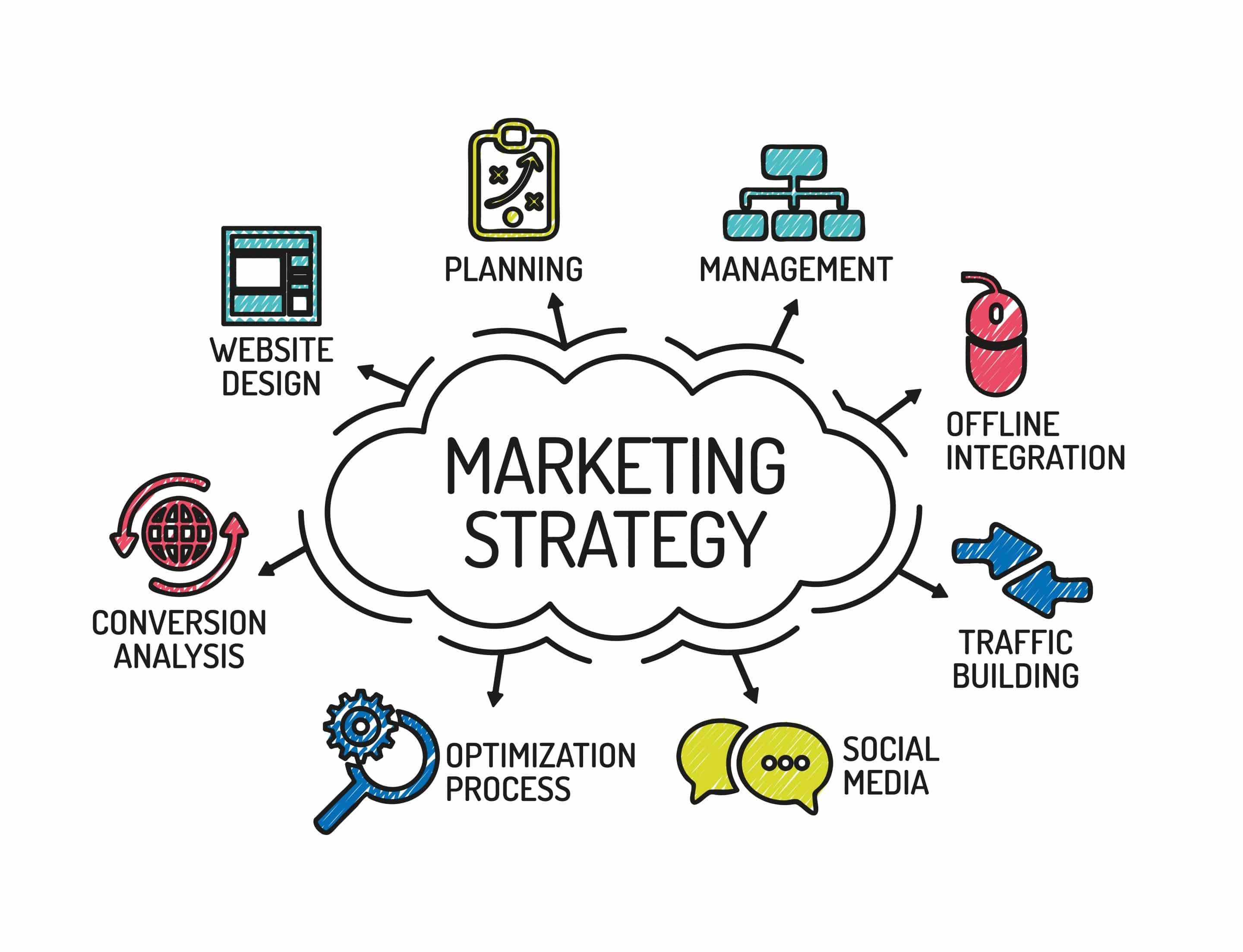Social media has become a core part of a successful business marketing strategy. According to Smart Insights research, a mind-boggling 4.62 billion users across the globe engage with people and brands on social media channels, which accounts for 58.4% of the world’s population. This should give you a fair hint of the overwhelming amount of content being published and interacted with on these platforms.
The increasing number of social users, new platforms, and content distribution modes will continue to demand the most marketing efforts from businesses. With every business now making social media the forefront of their marketing plans, it becomes crucial for you to get a bit scientific. To stay ahead of the curve, you need to understand how your social strategy is performing and get insights that help you derive maximum value.
Today’s challenge is to manage the incoming data from your social channels and derive meaningful insights from them. It might seem like a rabbit hole, but a systematic approach can ensure that you translate all your social data into valuable learning.
In this article, we talk about how an efficient social data management approach can help you provide accurate market insights for improved ROI.
“Social Data Management”
Social Data Management is a process where you gather, store, process, and analyze data generated from or through your social media profiles like Facebook, Instagram, Twitter, YouTube, LinkedIn, and Pinterest. It can be considered a stage in Social Data Analytics where you collate all the data in one place to prepare it for further metric segmentation for marketers to analyze.
Before we move ahead, let’s first understand this social data.
Social Data
Social data, or social media data, is a set of metrics such as likes, shares, URL clicks, and followers; demographics such as age, interests, and gender; and other information such as hashtags, keywords, brand reputation, mentions, and crisis response rate accumulated from different social channels through analytics tools and social listening mechanisms.
Although earlier brands would only measure their social media success based on the number of likes, now it’s a whole different dynamic. To get a real picture of your performance, you need to measure intricate details like impressions, engagement per 1000 followers, and mentions. Even today, quite a few businesses fail to dig deeper into their metrics. It could be for various reasons, such as lack of understanding of its true value, resource and skill shortage to deal with the data, and failure to capture the data properly.
However, the sooner you understand the value social data management brings to your business, the better your chances of carving a market and audience niche for your business.
The Need for Social Media Data Management
Today, data is the new oil. Using it efficiently, the ideal processes to collect and review data give your business and your resources a powerful asset. Data enables you to make smarter and more informed business decisions, improve products and offerings to suit customer expectations, and build a community of loyal customers. It also optimizes costs by removing unnecessary budget allocations to unproductive campaigns. However, you need to implement a robust data management plan to enhance your social media strategy and achieve business goals to realize these benefits.
 Build One Data Hub for All Channels
Build One Data Hub for All Channels
Many businesses face one major challenge when beginning their social data journey the insurmountable data that flows from different directions and channels. This is the first thing that social data management solves by collating all the social data from different platforms, campaigns, and strategies into one place for you to sift through, prepare, and process for a detailed analysis. Such an approach will help you deliver consistent messaging across channels and execute a unified marketing plan.
 Record & Measure KPIs
Record & Measure KPIs
Through social data management, you get a holistic and structured view of all the KPIs, conversations, and engagement to easily understand and generate reports. You get a clear understanding of what content is working for you, which channels are generating more traction, and what types of posts are compelling users to take action.
For example, you might’ve published a video promoting one of your offerings, and it’s getting a near-viral response. However, if that is not being converted into your website traffic, you can look at the click-through rate and understand what needs to be fixed.
 Improve Overall Marketing Strategy
Improve Overall Marketing Strategy
Any successful marketing strategy starts with an appropriate understanding of the target group, their interests, and their pain points. You can easily build a customer persona and profile by looking at a channel metric. However, this becomes a tedious task if your audience is spread across multiple channels. Social data management enables you to get an updated and collated customer profile in real-time. It also keeps track of changing customer behavior and trends so that you can adjust your strategy.
You can further enhance your marketing campaigns by analyzing metrics to understand which channels to promote offerings on for a specific audience group, the ideal content format for the chosen demographic, etc.
 Personalize Offerings & Experience
Personalize Offerings & Experience
Customers like to engage with you directly on social channels by either interacting with your content or messaging you with their queries. This information can be mined to understand customer preferences for various things like channels, devices, interests, social awareness, and even, in some cases, payment methods. These insights can then be used to personalize your offerings, content strategy, and SEO plan, among other things. You can optimize your entire approach to suit the preferences of your target audience.
You can also use this information to produce content that primarily helps your customers while subtly promoting your product. For example, many coffee brands actively share interesting and easy recipes that users can try at home. You might have also come across fashion brands sharing grooming tutorials.
 Monitor Brand Image & Positioning
Monitor Brand Image & Positioning
Social data isn’t just about numbers. An effective social media strategy goes beyond that and establishes mechanisms that track non-quantifiable factors like the customer perspective of the brand. Social listening is an effective strategy for assessing how mentions and conversations about you are perceiving your brand image.
Quite a few brands lose many customers to bad customer experiences. You can significantly improve your brand image and refine your product positioning by factoring in user-generated content and your response time to customer queries.
Benefits of Social Media Data Management
If you’re still unconvinced about how social data management will add value to your business, let’s take a quick look at its benefits.
 Improves Decision-Making Process
Improves Decision-Making Process
Having a ready set of data in easy-to-understand and attractive visualizations accelerates decision-making. Your resources will spend less time gathering data and analyzing it every time they need to make a decision and just generate the report they need in minutes and expedite the process.
 Enhanced Data Security
Enhanced Data Security
With an efficient social data management approach, you can improve the quality of your data analysis and secure the data sets. You can implement proper governance policies to make sure your trade secrets remain confidential.
 Increase Marketing Efficiency
Increase Marketing Efficiency
Businesses are willing to spend money on marketing, but the challenge is to understand how to go about it. With social data management, you can make ideal budget allocations with full knowledge of where your customers are, what type of content they like, etc.
 Better Collaboration
Better Collaboration
Although a marketing team comprises resources with different skills, the onus of executing a successful social media strategy often falls on one social media professional. But with in-depth information about how users interact with the content and what is appealing to them, you can take a collaborative approach when devising a marketing plan.
 Find Your Business-Specific KPIs
Find Your Business-Specific KPIs
Social data is full of information and metrics, some of which might seem irrelevant to you. However, once you collate the data and analyze it, you will realize how vital the metrics you are currently measuring are and what you should be focusing on.
Conclusion
Effective social data management allows you to stay on top of your marketing efforts by streamlining the collection, storage, preparation, and analysis of data gathered from various data sources. With brands increasing their budget allocations for social media to enhance customer service and enable product penetration through digital channels, it is becoming an increasingly competitive landscape. You can only achieve success by employing a holistic data management strategy.
It’s quite natural for you to get overwhelmed with the scope of things. Thankfully, there are a lot of management tools and platforms that enable you to implement a social data management strategy seamlessly. Konnect Insights offers one such user-friendly and streamlined management platform for your social media data needs. It comes with various capabilities across services like publishing, analytics, engagement, and listening. You can integrate all your customer touchpoints onto a single platform and create a command center to manage your social media activities.



 Build One Data Hub for All Channels
Build One Data Hub for All Channels
 Record & Measure KPIs
Record & Measure KPIs Improve Overall Marketing Strategy
Improve Overall Marketing Strategy
 Personalize Offerings & Experience
Personalize Offerings & Experience
 Monitor Brand Image & Positioning
Monitor Brand Image & Positioning
 Improves Decision-Making Process
Improves Decision-Making Process



























